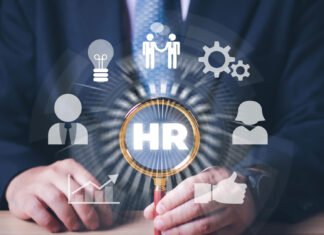Today, the leading talent advisory firm DHR Global, released the findings of their 2025 Workforce Trends Report. As employees continue to grapple with multiple shifts in the ever-changing landscape of work, this data offers insight into how the most pressing trends will impact businesses moving into 2025. Most notably, DHR Global’s report finds that 88% of workers reported feeling very or extremely engaged, but 82% are experiencing burnout. There are a plethora of environmental factors that impact employee engagement today, with over two-thirds of respondents noting the tighter job market and 61% citing job insecurity.
“Many often interpret high employee engagement as high satisfaction, but these burnout rates paint a different picture,” said Keith Giarman, Managing Partner of the Global Private Equity Practice at DHR Global. “From a surge in executive turnover to AI disruption, today’s employees and employers continue to be challenged. As employers chart their course into 2025, understanding employees’ perspectives will be crucial and this report provides executives with insights on the key factors impacting their employees’ engagement and productivity.”
Over 8 in 10 respondents say they feel burnt out to some degree, with younger generations particularly affected. Top drivers of burnout include—long hours (58%), overwhelming workloads (35%), and difficulty balancing work and personal life (34%)—highlighting systemic issues within organizations. With 74% of respondents expressing trust in their leadership, but only 43% deeply trusting them, illustrating a need for company leaders to remain accessible and connected. The report shows that nearly all respondents agreed that professional development opportunities increased their engagement, showing a powerful return on demonstrating a commitment to employees’ growth.
“It’s been a tumultuous year for employers, and 2025 is shaping up to follow suit,” said Jeanne Branthover, Managing Partner of the Global Financial Services Practice at DHR Global. “U.S. employers will need to navigate heightened political tensions, all while economic uncertainty continues to shake financial markets. Long-term shifts like generative AI and the evolution of remote work will continue to be key areas of focus. Addressing these trends to fit the unique organizational culture for each business will be critical to lay the groundwork for success in 2025 and beyond.”
Several notable findings from the survey emerged as direct influences on the state of employee engagement, productivity, and sentiment today:
- Trust and C-suite turnover: The consequences of leadership changes in the workplace —
- In the past year, half of respondents experienced the departure of a C-suite executive at their organization, highlighting a significant trend of leadership turnover.
- Fifty-five percent of those respondents said the departure of a C-suite executive has made them question whether their organization’s mission is worth believing in or working for. While 52% said it created operational problems, like delays and confusion over ownership of projects.
- However, almost two-thirds of employees said executive turnover increases their engagement, proving new leadership to also be an opportunity to inspire employees with a refreshed vision or new direction for the company.
- The AI disruption: Navigating productivity gains to job security concerns —
- Seventy percent of respondents reported AI tools positively impact their engagement and 72% report a positive impact on productivity.
- Employees’ feelings about generative AI are more complicated. Fifty-two percent of respondents felt enthusiastic about using generative AI to improve their job productivity, yet nearly the same amount (51%) are concerned about the threat generative AI poses to job security – underscoring the need for organizations to provide clear guidance and support to help employees navigate these tools.
- Political distraction: Balancing between work and home stressors —
- Sixty-one percent of workers agree that changes in their country’s political environment make them less engaged and more distracted at work. As political discussions in the workplace have evolved, leaders face the challenge of maintaining focus and cohesion amid a surge of external pressures.
Methodology
DHR Global surveyed 1,500 white-collar, desk-based knowledge workers who are proficient in English and aged 21 or older. The respondents were evenly distributed across three geographic regions: 500 from North America (U.S. and Canada), 500 from Europe (Germany and the U.K.), and 500 from Asia (India, Hong Kong, and Singapore).
Explore HRTech News for the latest Tech Trends in Human Resources Technology.












